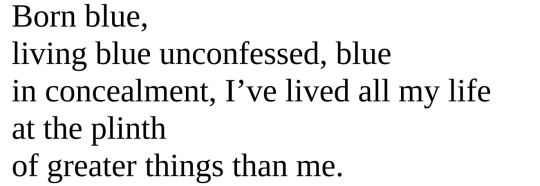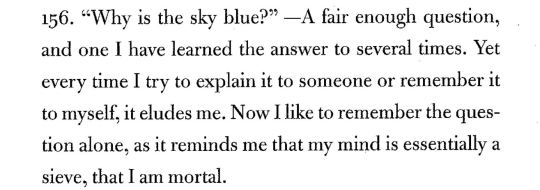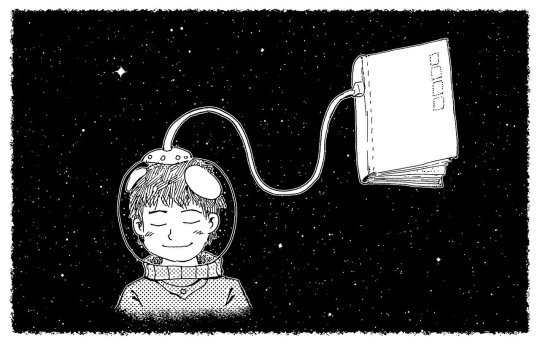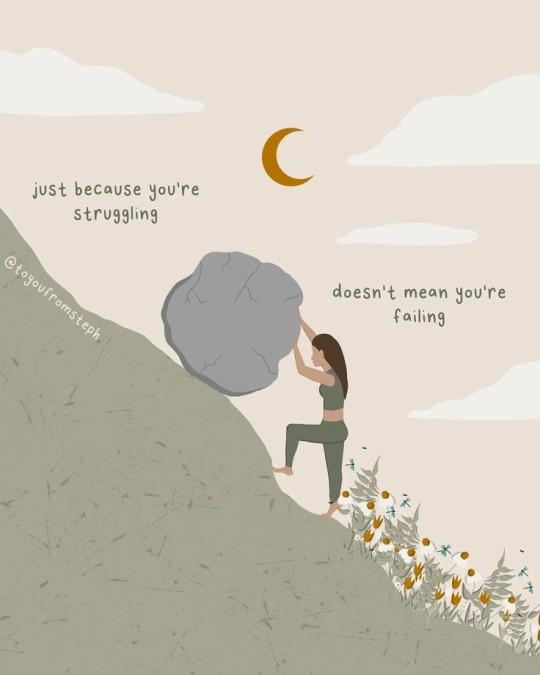Photo




The unfortunate truth about leaving home and starting adulthood.
104 notes
·
View notes
Text












On blue and blues
Maggie Nelson (Bluets), Banana Yoshimoto (Asleep), Li-Young Lee (The Undressing: Poems), Aron Wiesenfeld (Study for Night Reading), Holly Warburton (Shoreditch, Blues, Witches, A Face in the Crowd)
˗ˏˋ☕ˎˊ˗
3K notes
·
View notes
Text
Why Should we read books

There is a saying that a person lives a single life and a reader lives many ,as a books contains many life experiences (if you opt for life lesson one),reading a book based on something you like to read can be a addictive thing (any thing in excess in bad).
So why you should read a book?here what happens when you read a book:–
Mental Stimulation
stress Reduction
knowledge
Memory improvement
Stronger Analytical Thinking skills
Better Writing skills
Improves Focus and Concentration
Vocabulary Expansion
Mental Stimulation
Just like any other muscle in the body, the brain requires exercise to keep it strong and healthy,so the phrase"use it or lose it"is particularly apt when it comes to your mind.Doing puzzles and playing games such as chess(and some video games) have also been found to be helpful with cognitive stimulation.This can also be achieved just by reading a book.
Stress Reduction
No matter how much stress you have at work,in your personal relationships,or countless other issues faced in daily life,it all just slips away when you lose yourself in a great story.A well-written novel can transport you to a different world:),while an engaging article will distract you and keep you in the present moment,letting tension drain away and allowing you to relax can easily achieved by reading book.
Knowledge
Everything you read ,see or watch fills your mind with new bits of information and you never know when it might come in handy so chose your contents wisely as it will effect your future personality:).When a book is published it has been corrected and rechecked by many people so information on a book is more accurate then any Wikipedia or google searches .
Memory Improvement
When you read a book, you have to remember an assortment of characters, their backgrounds, ambitions, history, and nuances, as well as the various arcs and subplots that weave their way through every story. That’s a fair bit to remember, but brains are marvelous things and can remember these things with relative ease
Strong Analytical & Thinking Skills
Have you ever read an amazing mystery novel, and solved the mystery yourself before finishing the book? If so, you were able to put critical and analytical thinking to work by taking note of all the details provided and sorting them out to determine “whodunnit”.That same ability to analyze details also comes in handy when it comes to critiquing the plot; determining whether it was a well-written piece, if the characters were properly developed, if the story-line ran smoothly, etc.
Improves Focus and Concentration
In our internet-crazed world, attention is drawn in a million different directions at once as we multi-task through every day. When you read a book, all of your attention is focused on the story—the rest of the world just falls away, and you can immerse yourself in every fine detail you’re absorbing.
Better Writing Skills
This goes hand-in-hand with the expansion of your vocabulary: Exposure to published, well-written work has a noted effect on one’s own writing, as observing the cadence, fluidity, and writing styles of other authors will invariably influence your own work.
Vocabulary Expansion
The more you read, the more words you gain exposure to, and they’ll inevitably make their way into your everyday vocabulary. Being articulate and well-spoken is of great help in any profession, and knowing that you can speak to higher-ups with self-confidence can be an enormous boost to your self-esteem.
here are some books which i would like you to at least have a look ,i have rad them & they have changed my life for good :)
Download Free books and read more amazing post
visit Blog
559 notes
·
View notes
Text
So... I found this and now it keeps coming to mind. You hear about "life-changing writing advice" all the time and usually its really not—but honestly this is it man.
I'm going to try it.

102K notes
·
View notes
Text
A COMMENT FROM REDDIT
I’ve taught in Japan for 20+ years.
Everyone who starts a new job in a new field starts with “imposter syndrome” and self-doubt. I know for me when I came to Japan I felt as if I was on a river going downstream towards some rapids or a waterfall, I wondered, “Will I screw up?”, “Will everyone think I’m incompetent or a fraud?”; “Will I make it out okay?”.
The answers are “Yes, probably, you’re doing something new. You’re going to make mistakes. But it won’t be as big of a deal as you’re torturing self imagining it will be.”
“No, they will think you are new to teaching, and from past experience, they will expect it.” and,
“Of course you’ll be fine. You’re coming to Japan to live and work in a situation that many young new graduates with no teaching experience have done before, doing a job with colleagues who have worked with your predecessors who were no better prepared than you are.”
Keep things in perspective. You’re not going crabbing in a small boat off of the coast of Alaska, you’re going to teach in a school, in the safest country in the world. The “responsibility” you will have as an ALT is absolute zero. The Japanese teachers answer to the parents and principal/vice principal. Your only real responsibilities are showing up on time, be friendly with the students, and not be an assho... er, make an effort to be flexible and get along with your coworkers.
In fact, you’ll find that after your first three to six months, the actual teaching will be the least challenging aspect of your life. It will still be a challenge, but everyday life, such as buying the right detergent to wash clothes will be far more of a challenge. (I bought a bottle with the Tide swirl on it. It was bleach. I ruined half my work clothes in the first load of laundry I did after I arrived in Japan.)
You won’t need to come up with 5 lessons a week, more likely 5-10 or less lessons a month. (Though every school will be different).
There is information online for ALTs on every level of teaching at Japanese schools. Find out the target language, get on the internet and start digging. You’ll find a wealth of information that didn’t exist when I began teaching in the 1990s.
And you have an amazing resource at hand: your Japanese co-workers. Don’t expect them to spoon feed you, but ask them questions. “What do you think is the best way an ALT can help students improve their English?” “ What activities did ALTs do before me that you thought were really good?” And listen to their answers. I’m going to repeat that. LISTEN TO THEIR ANSWERS. They will most likely be vague and general initially, but somewhere inside their response will be something that you can use, and once you’ve shown yourself as someone who responds well to advice and Is willing to make an effort, they will be ten times more helpful, and it will make future lesson planning so much easier.
Once you are tuned in to what they want from you, use the internet. There are hundreds of websites. keep digging and you will find something you can adapt to any class.
At elementary and JHS level, you can start with a simple PPP type lesson, (google PPP teaching method). Basically it breaks the class into 3 parts. Present/Practice/Produce. PRESENT the target language you want them to use. Have students PRACTICE it in some form of drill. (A “game” in this context is just a drill presented in a fun format) then end with an activity where the students PRODUCE the language themselves.
You could teach the entire year just using this framework. You just need to find out the target language and find/adapt three activities that will be level appropriate and fun for the students. And this is just an example of one methodology, there are many others. Teaching is a form of presentation, it’s a form of performance, and the key to doing it well is preparation and practice.
You mention you can’t make engaging lessons. No one can at first. No one picks up a bat the first time and hits home runs. It’s ridiculous and counter-productive to put that kind of pressure on yourself. If you prepare seriously for any job, any activity, you will do well, or you will at least be in a position to learn from your mistakes and do better the next time.
You say being a teacher isn’t your goal. Don’t think of it as if you are training yourself to be a teacher, think of it as you are training yourself to adapt to new environments and do well in them. Teaching at its base is fundamentally the skill to communicate well. And media critic/producers working in Japan can only benefit from learning how to communicate well with Japanese. I firmly believe that by experiencing the Japanese education system firsthand you’ll have a leg up in understanding Japanese culture and it will help you avoid common pitfalls foreigners make.
You’ll actually find an ALT position to be a low demand low consequence way to experience Japanese life learn about how Japanese communication differs from Western styles, and it will even allow you time to dedicate to your own goals.
To be successful as an ALT, you only have to do four things. Show up on time, put in some effort, be personable to the students, and don’t be a dick. That’s it. (I know the last one seems obvious, but you’d be surprised how many horror stories I’ve heard from Japanese coworkers and teachers over the years which could be boiled down to the ALT being a mule-headed, self-absorbed, inflexible asshole or just flat out lazy.) Heck, you hit 3 out of four and they’ll be happy. You have a really low bar to get over to satisfy your Japanese coworkers and make your school happy, trust me.
You’re letting the unknown scare you. What you are afraid of is change, and that is scary. But you’re just starting a new phase, the one where you actually live and work in Japan. It’s a path many have walked before you, so there isn’t any “danger”, only uncertainty. I use the image of a waterfall as an example not because it is dangerous but because it implies that you will be entering someplace new, you’ll be leaving your old life behind, and it will be difficult if not impossible to return to where you were before. Don’t be afraid of it. Grab your oar and start paddling, take control and go over that waterfall, your future is on the other side. You might not be able to see over the edge but there’s nothing to fear. You’ll be fine.
0 notes
Text
Things to Remember
You are not required to set yourself on fire to keep others warm, nor are others required to set themselves on fire to keep you warm.
“No.” is a complete sentence.
You matter just as much as other people do, and you deserve love and care, too.
You are a person, not a role.
You weren’t put on this Earth to please other people.
If taking care of yourself means disappointing someone, disappoint them.
Rest is productive.
It’s okay to take a break from the news, social media, the push notifications, the phone calls and texts.
Your best today might not look the same as it did yesterday, or even five minutes ago.
Self care isn’t just spa days and chocolates and bubble baths.
There’s only so much “you” to go around. Budget your time and energy wisely.
Self care isn’t selfish or sinful. It’s an absolute necessity.
It’s more than okay to ask for help.
You can’t control or fix other people. But you can always take care of yourself.
Be with people who are good for you.
Your well-being is worth more than any job, any title, any award or trophy, any grade, any relationship.
Go where you’re appreciated, not just tolerated.
There are people who love and care about you, unconditionally. Those are your people. You might have to find them, however.
Being kind isn’t always the same as being nice.
It’s more than okay to leave jobs, relationships, and situations that aren’t good for you.
Give yourself credit, even if it’s for something as (seemingly) simple as, “I got out of bed today!”
280 notes
·
View notes
Text
Study Tips for Students
Make full use of your planner/bullet journal.
If you are like me, with a busy schedule (from school, work or personal life) having a planner or a bullet journal could save you from all the mess. Do incorporate your classes, homework, work schedule or any important events that you have planned out beforehand. This gives you an overall view of what you are supposed to do and how much free time you have for the day or week.
Colour coded your classes.
This might seem unnecessary, but colour coding is an easy way to help you find the assignments you need for your class in your planner or bullet journal. This way, you would just have to glance through your planner instead of going through every single line to find the task that you wanted.
If colour coding seems overwhelming to you, stick to one colour per classes. For example, you can use different shades of blue highlighter for the class – blue for important information, light blue for formulas etc. I mean, companies out there have released different shades of colours so you can make full use of it.
Make a study guide.
You can make a study guide for each class. Having a study guide can help you with your studying. I don’t know how other people use their study guide but whatever method or technique you are using, make sure it benefits you in your studies. For example, some people make study guide out of the syllabus that their lecturer or professor gave out before the start of the class.
You can add in checkmarks on the study guide to assist you with your revision. Like checking a checkmark once to remind you that you have completed that topic for your mid-terms, etc.
Print or download any assessment test you can find.
By printing or downloading any test papers you can find that is beneficial for your classes, it can help you with how the format of your test papers will come out. This test papers will be helpful when you are practising and revising for your examinations as it will also give you a guide on which topic that you need to work on.
Save at least one morning/afternoon for intense studying.
It does not have to be an entire day because you will be really exhausted by the end of the day. Trust me, I did that once, and hell no am I going to do that again (unless I decided to procrastinate till the very end). Have at least 2-3 hours dedicated for intense studying. If your days are filled with classes and work, having a few hours to organise your study materials will help you.
Prepare in advance.
Trust me, I am not a good person to advise on this, but I’m trying to fix this bad habit of mine. Make a summary of the topic that your lecturer or professor will be covering for that class. This will give you a piece of brief information on what is going on if somewhat during the lecture or class, you have no idea what’s going on, you can refer to the summary that you did.
Also, prepare your materials for examinations in advance too. Do not leave it to the last minute or you will literally die from finding all your materials. Prepare at least 2 weeks in advance so that you have enough time to find and even make the materials that have gone missing.
Take regular breaks.
Take breaks. You are not a robot. You can’t study for 5 hours straight. Your body will hate you for this I swear. Have regular breaks, no more of an hour. If you are studying for an hour, you can take a 15 minutes rest. Drink up, have a snack, scroll through your social media, walk around. Once you are done with your break, start your study session again. This will ensure that your brain and body feel overwhelmed with too much information being processed.
Study the least interesting topic/subject first.
There’s got to be one topic or class that you might find boring. Start working on those topics first as you are fully concentrated during the start of your study session. If you decided to work on those topics last, you will not be interested to go through the materials since your body and mind are already exhausted.
Keep your study space organise.
If you are like me, and have a messy desk 24/7, keeping your study space organise can really help you. Make sure you have all the materials you need for that study session – textbooks, study notes, lecture slides, coffee, etc. With this, you do not have to go back and forth searching and taking your study materials.
654 notes
·
View notes









